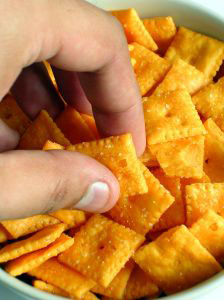 Addiction has been on my mind between watching Confessions of a Shopaholic for the first (and last) time and reading Vaughn Bell’s article on the subject. I absolutely agree that the word addiction has been loosely applied to a plethora of enjoyable activities in common culture. I am hopeful that these so-called addictions will not be added to the new Diagnostic and Statistics Manual, which is to be published May 2026; however, Vaughn Bell’s article informed me about a treatment facility that has opened to treat “internet addiction.” The article does a great job of explaining what defines an addiction both technically and in popular culture.
Addiction has been on my mind between watching Confessions of a Shopaholic for the first (and last) time and reading Vaughn Bell’s article on the subject. I absolutely agree that the word addiction has been loosely applied to a plethora of enjoyable activities in common culture. I am hopeful that these so-called addictions will not be added to the new Diagnostic and Statistics Manual, which is to be published May 2026; however, Vaughn Bell’s article informed me about a treatment facility that has opened to treat “internet addiction.” The article does a great job of explaining what defines an addiction both technically and in popular culture.
As a therapist, I stick to the DSM to determine if something truly qualifies as a disorder. There is no diagnostic criteria for eating addiction. However, I also consider how helpful it is or is not to think about overeating in terms of an addiction. It could be beneficial to consider overeating an “addiction” if it helps someone take this behavior seriously.
It may be important to seek assistance from a qualified professional who can help with habit change and address any underlying issues that may contribute to overeating. On the other hand, considering overeating to be an “addiction” could be harmful if it allows someone to consider the behavior out of their control. Addictions, like many other mental health diagnoses, have been used as excuses to avoid responsibility and change.
Whether you prefer a conservative or liberal definition of the word “addiction,” you can still take overeating, over-exercising, or any behavior done to excess seriously. You are nearing a problem when any behavior (or thought) interferes with your functioning and causes problems in your relationships, career, family, and/or daily life.
I would love to hear some of your thoughts on whether or not eating can become an addiction!
